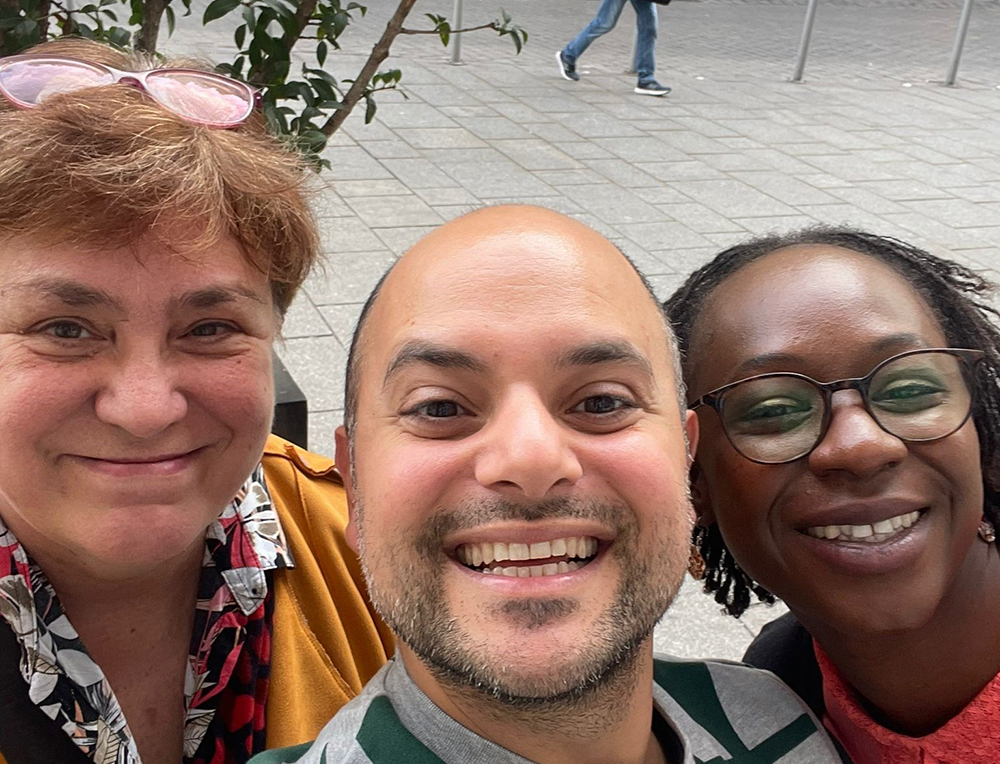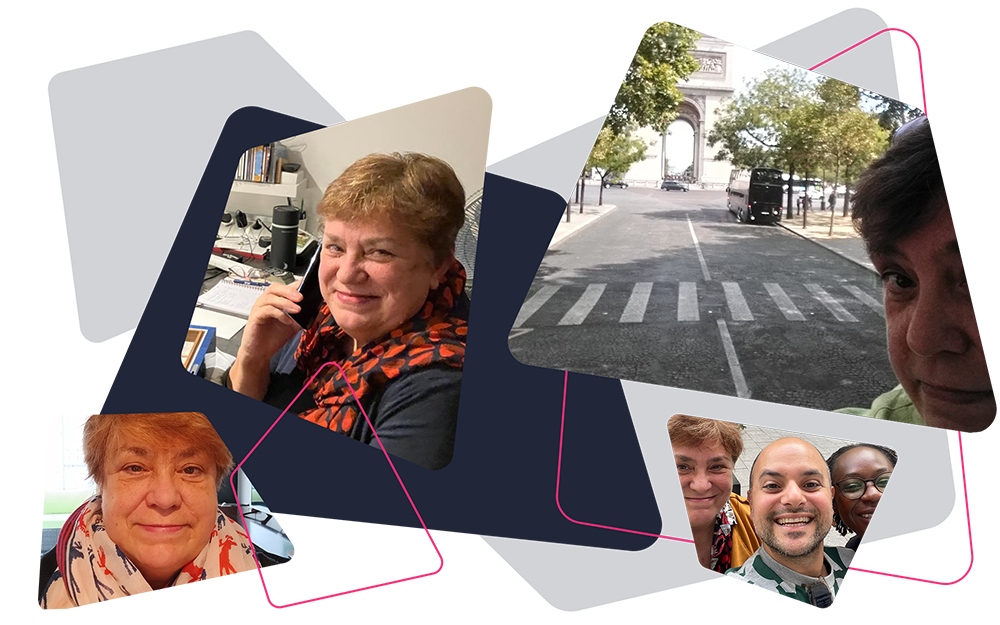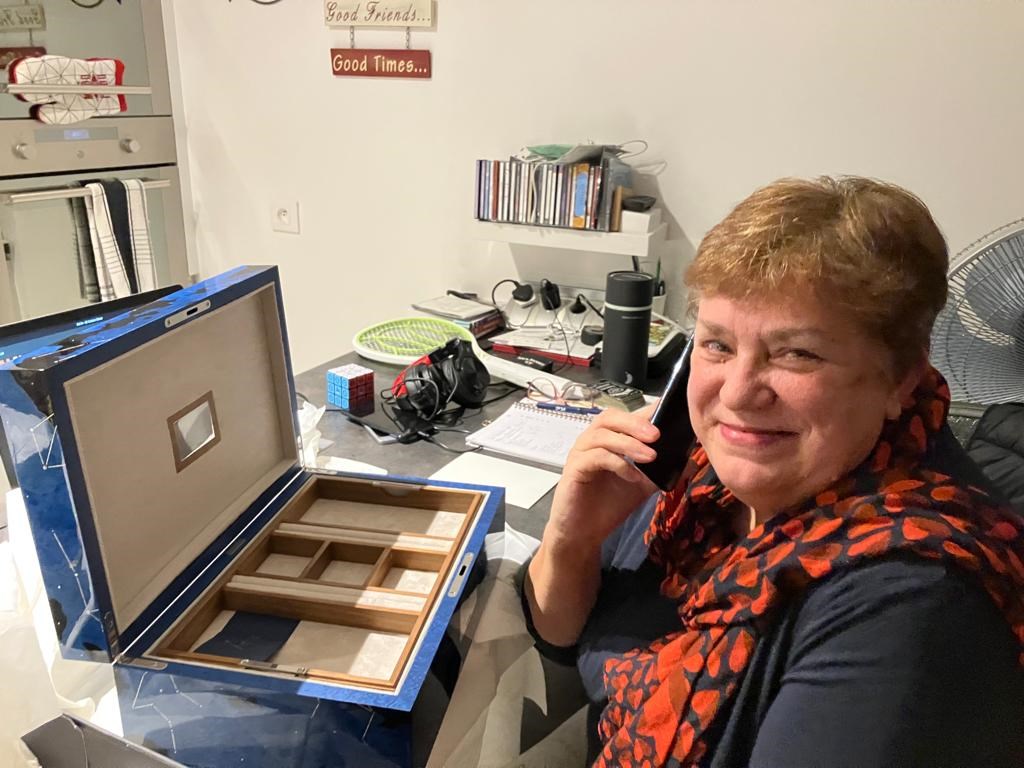On 7th March, K2 celebrated International Women’s Day. For us, however, one day just wasn’t enough!
Keen to shine a spotlight on as many of the business’ wonderful women as possible, we developed a campaign titled The Women of X Annos, which refers to the K2 women who have been part of the K2 Family for ten years or more. This campaign features a series of written and video interviews through which we explore the personalities, the roles and the formative experiences of K2’s longest standing female employees. Today, we introduce you to Bernie Hillewaert, a charismatic Consultant who is the very epitome of joie de vivre.

What’s your name, your job title, and how long have you worked at K2?
My name is Bernie Hillewaert. I am a consultant, and I have worked at the company for around 15 years.
As a member of the X Annos community, what motivates you to keep working at K2?
I had heard a lot about K2 and the innovative way that the company approaches Global Mobility, and so when the opportunity for a meeting arose, I grabbed it with both hands. Best decision I ever made!
When I first started, K2 was only really doing move management, though they had begun to venture into DSP. The K2 move management model was so refreshing in a stale industry: I felt that I could bring my whole client base over to K2 with me, which in the end I more or less did!
For 6 years I worked inhouse at K2, before transitioning to an external, part-time role which gave me the time to give back to my community by volunteering in palliative care at my local hospice.
In 2019, K2’s CEO Nick Plummer asked me if I would be happy to come back full-time to set up an office in Paris (my whole career had been spent working within the French market).
My motivation to keep working at K2 is driven by my passion for the business: its ethics, transparency and openness, its management, and its people – wonderful individuals who always support each other. I can honestly say that K2 offers a truly unique working environment.
What does gender inclusivity mean to you?
Gender inclusivity for me is not just about equality, but also about equity – getting the support to be able to achieve an outcome, to be appreciated as a valued member of society.
In 1983, when I first started work, not many women were placed in customer-facing roles in the removals industry, which was still very much a male-dominated environment. In fact, I clearly recall my first CEO telling clients I was an ‘experiment’ in the business as a woman who held three influential roles: Surveyor, Account Manager and Business Developer. At that time, you would not have openly challenged this description, so you just had to shrug your shoulders, give it 110% and prove you were as good as any man, if not better. That was the reality.
To this day, I occasionally still come across situations where people do not expect a woman to turn up to do a survey, or a crew does not expect a woman to come and tell them how to pack and load. Once they get to know you, though, they appreciate you as an equal.
What advice would you give to women aspiring to leadership roles in the business world, based on your own experiences and insights?
My advice would be to only pursue what you are truly passionate about: it is your passion for a particular industry that will set you apart and will allow you to achieve your dreams. Believe in yourself and that you can achieve whatever you want to achieve.
Seeking a leadership role just for the sake of having a leadership role may not be a success, and it will most likely not make you happy.
So, first and foremost, do what you want to do, not what someone else is telling you to do or what you think you should be doing.
How has K2 supported your career growth over the last 10+ years?
I did not expect my career path to extend that much when I joined K2 in 2010, as I felt I was in what many would classify as a ‘fin de carriere’ situation. However, within a short space of time I joined the K2 Board, which was a great experience, before stepping back and taking a ‘half sabbatical’ – part work, part volunteering. I then came back to K2 full-time to help set up K2 France. At all times, the K2 Board and Management has supported me, and I will be forever grateful for that.

Can you share a pivotal moment in your career journey, one which has led to a real sense of fulfilment for you?
I think the situation I referred to above, when the CEO of a traditional moving company classified me as an ‘experiment’: that was very much the moment that I decided to prove him and everybody else wrong, becoming more determined than ever to become a known quantity in a ‘male’ environment.
How do you think that K2 is challenging the Status Quo in the global mobility industry?
K2 have always challenged the status quo, from the very inception of the business. We do this through our innovations and by thinking in an entrepreneurial way around the needs of the client and assignee. We are solution-driven and proactive in an industry that can still be very reactive.
K2 is a trendsetter, and nobody has ever come close to emulating what we do. In many respects, we are still a bit of a mystery to the industry – we cannot be classified or pigeonholed in the same way that other organisations can.
What do you think the future would look like if we had more female leaders?
I think a broader mix of women and men across all strata of an organisation is always a good thing. What I think is more important, though, is that we have more leaders who display emotional intelligence and empathy, two qualities that aren’t defined by gender.
If you have a minute, go and google ‘best female leaders’ and then ‘best male leaders. The former search will bring up current women, the latter will show you historical men. It is an interesting exercise, one that reflects the newness of the recognition of women as leaders.
Leadership to me is about walking the walk and not expecting people to do what you are not willing to do. Do this and you will really be leading from the front. Whether you are a man or a woman – it doesn’t matter.
How can more companies foster a more inclusive and supportive environment for women?
I think it is important that companies recognise that policies, pay structures and benefits should treat men and women as equal in any job role. Policies should be transparent and communicated to all.
It is the role of forward-thinking global organisations to believe in equality for all and consistently select the most qualified individual for the position.

